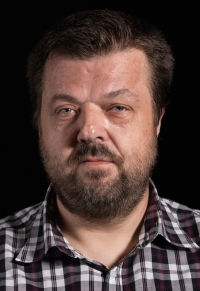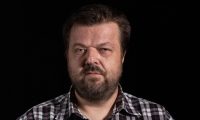Would there be war? Would the Russians supress it?
Ondřej Schulz was born on January 7th of 1974 in Kolín. His family had been persecuted by the communist regime. His grandfathers´ factory had been nationalised and his father was imprisoned for six months as he was distributing a student resolution on the Hungarian Revolution of 1956. They lived through ‘the normalisation’, disgusted, yet without further tragedies occurring. As a fifteen-years old apprentice, he joined the November revolution. He participated in the general strike and also joined protests in Pečky, his birthplace. After the revolution, he passed the secondary school leaving exam and has been working as a design engineer since.

